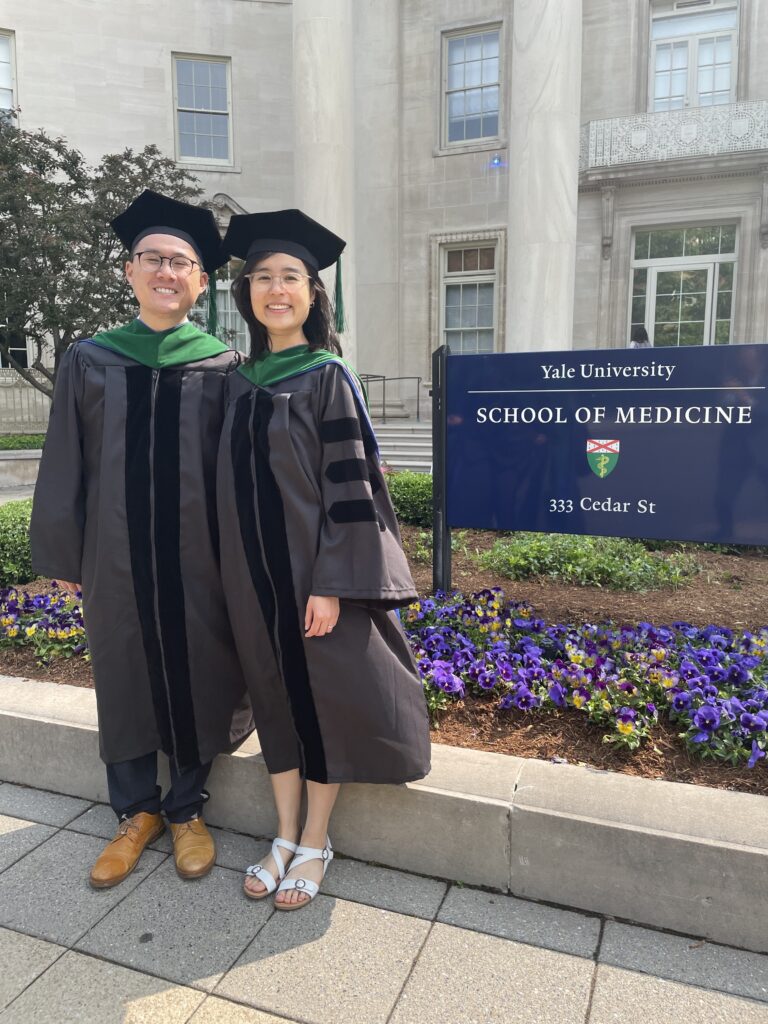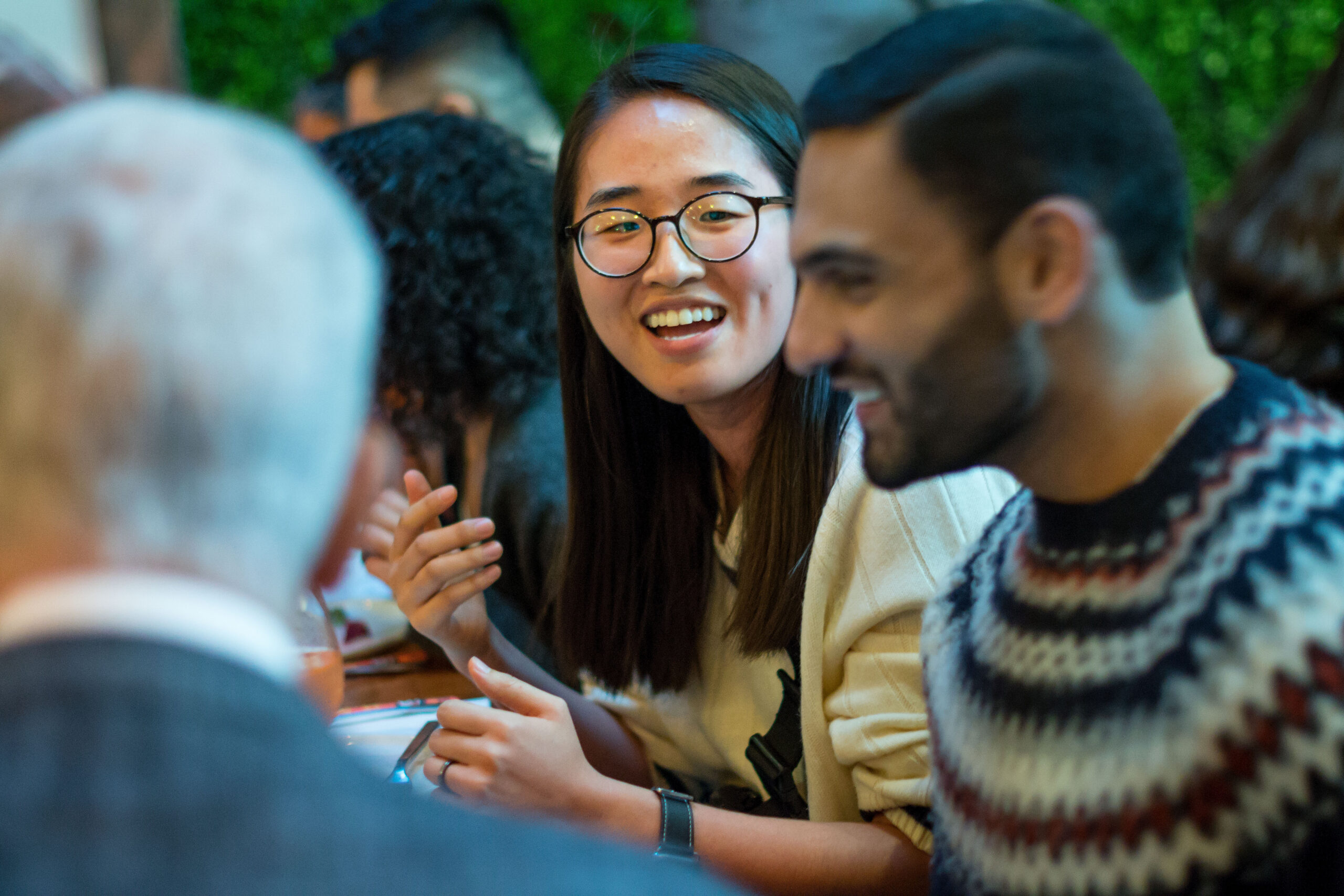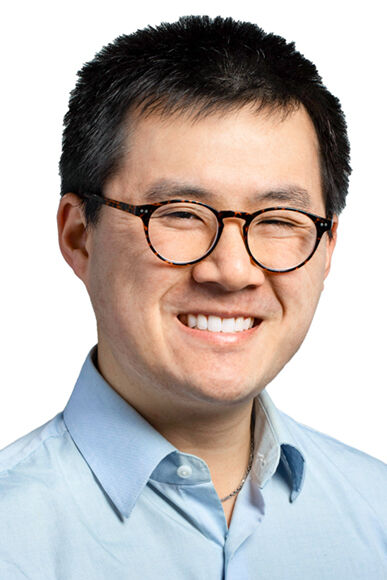- Fellow Highlights
Looking Back at the Fellowship: MD/PhD Student Ryan Dz-Wei Chow
2021 Paul & Daisy Soros Fellow Ryan Dz-Wei Chow was an MD/PhD student at Yale School of Medicine.
At Harvard College, Ryan majored in developmental and regenerative biology, with a minor in music. In the laboratory of Jayaraj Rajagopal, a pulmonologist at Massachusetts General Hospital, Ryan investigated the mechanisms by which lung cancers can shapeshift into different subtypes and become resistant to therapies. His work garnered the Thomas Hoopes Thesis Prize and the Captain Jonathan Fay Prize, awarded to the most outstanding and imaginative senior thesis among the graduating class.
After graduating summa cum laude and Phi Beta Kappa, Ryan entered the MD/PhD program at Yale University and subsequently joined the laboratory of Sidi Chen. Ryan’s doctoral work focuses on engineering the immune system to eliminate cancers. His scientific contributions to date include the discovery of mutations that sensitize tumors to immunotherapy, the invention of a therapeutic modality that overrides the immuno-evasive camouflage used by tumors, and the identification of genes that restrain the ability of immune cells to destroy tumors.
We caught up with Ryan about what’s next and what the Fellowship has meant to him:

What are the steps you’ve taken after graduating?
I have graduated from the MD/PhD program at Yale, where I pursued my graduate studies in genetics. My wife and I are thrilled that we matched together to the University of Pennsylvania for residency; I will be in the physician-scientist track of the Internal Medicine program, with plans to ultimately pursue training in hematology/oncology.
Can you tell us more about your graduate studies—what questions were you pursuing?
Having worked with an oncologist as an undergraduate, I was excited by the rapid proliferation and implementation of tumor sequencing in the clinical setting. But it was also frustrating to see how, more often than not, these tumor sequencing reports offered minimal useful insights for patients. In my graduate studies, I wanted to zero in on this inconvenient truth: that in the absence of detailed experimental characterization, merely knowing the mutational makeup of a cancer is not enough to meaningfully inform clinical management. To help realize the potential of precision oncology, I set out to build a next-generation toolkit for functional cancer genomics, primarily through the use of CRISPR genome editing technologies.
Over the past two years, what personal or professional accomplishment are you most proud of?
During the PhD, I had my first opportunity to be on the other side of the mentor-mentee relationship—it was such a privilege to be able to work with several younger trainees in the lab and help them accomplish their goals. I am so proud of all my mentees and how they’ve grown into amazing young scientists. I’m especially excited that one of my undergraduate mentees will be applying for MD/PhD programs!
Do you have any favorite memories from the past two years as a Paul & Daisy Soros Fellow?
I had missed my first annual retreat because of COVID-19 concerns, so I went into the second retreat with no idea about what to expect. I was totally blown away by my co-Fellows—they were all so thoughtful, sincere, and brilliant—but there was also an immediate sense of camaraderie and belonging. I am so thankful that I was able to spend time with my co-Fellows at that retreat, and I have continued to stay in touch with many of them!
What advice would you give to someone who is thinking of applying to The Paul & Daisy Soros Fellowships for New Americans?
At first, I was very intimidated by the essay prompts for the Fellowship application. But looking back, the process of reflecting on my heritage and upbringing, then placing that in the context of my parents’ stories, was such a valuable experience in and of itself. I feel like in all the hubbub of college and trying to become “who” I wanted to be, I didn’t take enough time to think about the “why.” Working on the application for the Paul & Daisy Soros Fellowship was the push I needed to reflect honestly on why I do the things I do, and that experience really helped crystallize my goals moving forward. ∎
Keep Exploring
-
 Read more: The Public Voices Fellowship of PD Soros, in partnership with the Oped Project: Year Four
Read more: The Public Voices Fellowship of PD Soros, in partnership with the Oped Project: Year FourThe Public Voices Fellowship of PD Soros, in partnership with the Oped Project: Year Four
-
Read more: NOT ON MY RESUME: Ming Hsu Chen
- Fellow Highlights
- Fellows in Action
NOT ON MY RESUME: Ming Hsu Chen
-
 Read more: Kathy Ku Steps into Leadership as PDSFA Chair
Read more: Kathy Ku Steps into Leadership as PDSFA Chair- Board of Directors
- Fellowship News
Kathy Ku Steps into Leadership as PDSFA Chair
-
 Read more: Q&A with MD/PhD Student Silvia Huerta Lopez
Read more: Q&A with MD/PhD Student Silvia Huerta LopezQ&A with MD/PhD Student Silvia Huerta Lopez
